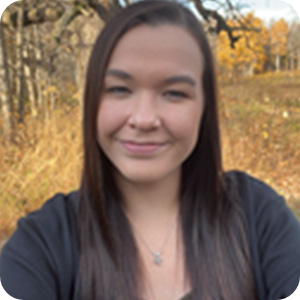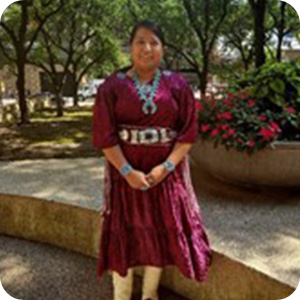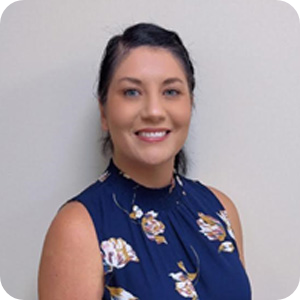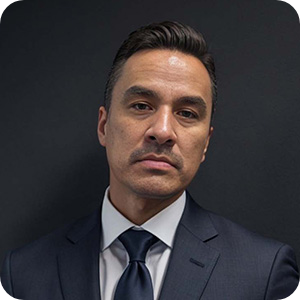Navigating Higher Education as a First Generation American Indian Nursing Student
American Indian and Alaska Native nurses represent less than 1% of the nursing workforce, highlighting the significant barriers these communities face in accessing and succeeding in higher education. Many of these barriers stem from the unique challenges that First Generation Bachelor’s and Doctoral students encounter, including limited knowledge of the academic system, lack of established support networks, and financial difficulties. This presentation aims to provide valuable information for both students and higher education institutions, focusing on resources such as scholarships, mentorship programs, and support systems that can empower these students to thrive. By recognizing and addressing these challenges, we can create pathways for success, ensuring that First Generation students are not only able to navigate the complexities of their academic journeys but also feel a strong sense of belonging within their college or graduate programs.
Presented by

Haley Warren, BSN, RN, is a second-year Doctor of Nursing Practice – Family Nurse Practitioner (DNP-FNP) student at the University of Minnesota School of Nursing. A proud descendent of the White Earth Band of the Minnesota Chippewa Tribe (White Earth Nation), Haley was raised within the community. As a first-generation college student, she was the first in her family to earn a bachelor's degree and is now the first to pursue a doctoral degree. Haley is passionate about sharing her personal experiences to help educate faculty and empower other American Indian and first-generation students as they navigate the challenges of higher education. In her nursing career, she has worked across several rural healthcare settings, including hemodialysis, family practice, pediatrics, and currently in an urgent care facility. Her diverse clinical background and commitment to supporting underrepresented students highlight her dedication to both nursing and her community.

Marla Jim, MPH, BSN, RN, WCC, is in her second year of the Doctor of Nursing Practice in the Health Innovation and Leadership specialty at the University of Minnesota School of Nursing. She is an enrolled member of the Navajo Nation and of the Towering House People (maternal) and was born into the Mexican People (paternal) Clans. She was born and raised in Shiprock, New Mexico. She received her Bachelor of Nursing degree from Arizona State University and a Master of Public Health degree from the University of Arizona, and she is a certified wound care professional. She has been a registered nurse for 19 years and has experience in pulmonary medical-surgical, wound care, ambulatory care, and community/public health nursing. Her passion is community/public health nursing, and she has served working in tribal communities for the last 16 years. She received the 2021 IHS Director’s Award and Pandemic Heroism Team Award for her efforts in the COVID-19 pandemic. She works for her tribe at the Canoncito Band of Navajos Health Center, Inc., a Tribal 638 clinic in To’hajiilee, New Mexico, as the Chief Community Health Officer.
Dementia Prevalence and Screening in Native Americans

Christain Kotoucek is a dedicated nurse leader who is also a proud member of the Choctaw Nation of Oklahoma. One of her passions in healthcare is equality for Native Americans in both access to healthcare as well as inclusion in research initiatives. Her goal is to bring the newest and best healthcare advancements to this population as well as to help with holistic education for healthy lifestyles to mitigate the risks of disease prevalence.
This presentation will review key statistics regarding dementia within the Native population and explore resources and recent breakthroughs in the diagnosis and treatment of this disease. In addition to discussion around prevalence and risk factors, the importance of implementing screening in the primary care setting and key tools to be incorporated with annual screening will also be reviewed.
Understanding Missing and Murdered Indigenous Relatives in Minnesota
Ana Negrete is the Community Planner for the Department of Public Safety’s Missing Murdered Indigenous Relatives Office. As the Community Planner, Ana works to raise awareness, train across multiple systems along with her team and collaborate with stakeholders to strengthen the state's response to the Missing and Murdered epidemic that was documented in Wilder Researchers MMIW Task Force Report to the legislators.
Ana comes to the department with more than 25 years of experience working within the Juvenile Justice System in various settings including her work as a probation officer and addressing systemic racial disparities, under her role as the Juvenile Detention Alternatives Initiative Coordinator. In this new role she hopes to develop relationships with various partners throughout the state to address the root causes of MMIR injustice. Her hope is to engage with those impacted by MMIR and seek to elevate their voices while raising awareness and pushing for systemic change. She hopes to support existing community lead efforts and 22collaborate agencies working to address risk factors which lead to vulnerabilities for MMIR.
An Introduction to Native American Political Status

Brandon Alkire presents on how Native American nations, citizens, and population hold a unique status in American society. A uniqueness that is shrouded in mystery and held in doubt since the public does not understand the complexity and specifics of Native American political status. Political status is a legal term of art used to define the status of Native American nations, people, and culture formed through the US Constitution, various treaties, federal laws, court cases, and congressional policy. This political status is a distinction held only by one population, Native Americans, for the purpose of federal engagement with Tribal Nations in a government-to-government manner. Further, this distinction, which is not based on race, is what separates Native American Nations/populations from the Diversity, Equity, and Inclusion initiatives.
This presentation will explore the nuances of Native American Political Status, how systems should incorporate political status into the ether, and the impacts of acknowledging political status.